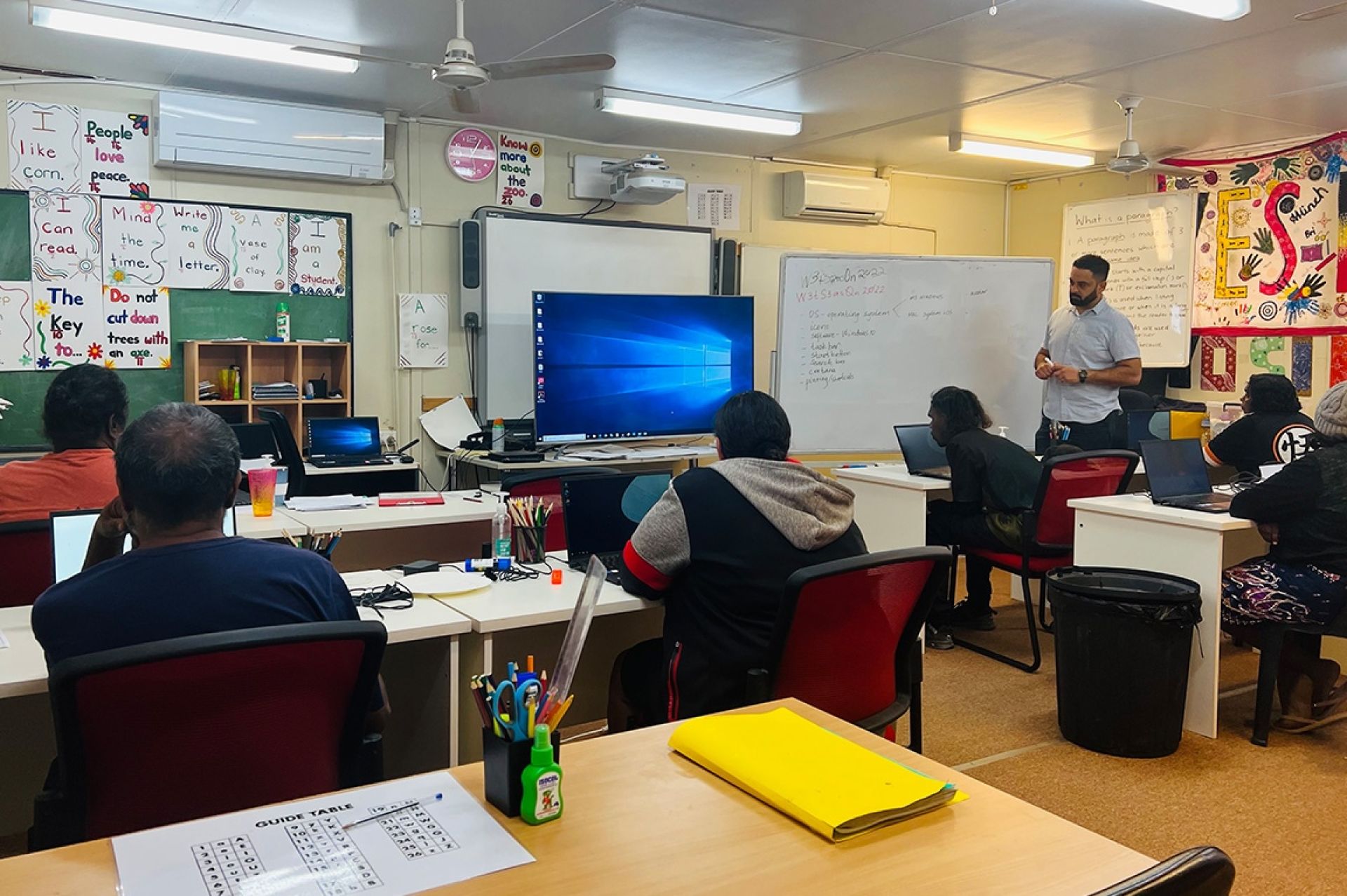
Following the successful delivery of digital literacy classes to more than 30 students in 2022, a promising pilot program is expected to continue in 2023.
Digital literacy is a far-reaching issue, with around one in four people in Australia considered digitally excluded. First Nations peoples and remote communities can face some of the greatest challenges in terms of digital exclusion. But by developing digital skills, students can soon benefit from improved digital inclusion, along with other opportunities in the longer term.
Eight students completed the pilot program in Santa Teresa in September last year, followed by a total of 24 students in Tennant Creek in November. Both women and men students took part in the classes that aim to increase the digital literacy of residents in remote areas in the NT.
In particular, the program provides skills about using digital workplace tools, searching and accessing digital information, connecting and collaborating effectively, and searching and accessing information. The course also equips students with an increased understanding of cyber security.
Batchelor Institute lecturers delivered the course on three occasions last year to participants of the Literacy for Life Foundation (LFLF), as part of a program with the Digital Skills Organisation (DSO).
The LFLF is “an Aboriginal-run charity training Aboriginal people to bring literacy to their communities.” The DSO, which is funded by the Australian Government Department of Education, Skills and Employment, works to develop “sustainable employer-led approaches to create a digitally upskilled, job-ready workforce.”
Batchelor Institute lecturer Palwinder Grewal said the course was a positive experience for all involved.
“Fundamental digital skills are a step towards learning lots of other new things,” Mr Grewal said. “They can improve confidence in people from First Nations and remote communities to use technology for everyday life, learning and work.”
After completing the course, students are better equipped to use computers, mobile phones, and tablets—skills that not only support everyday tasks like banking transactions or medical appointments, but can also enable further study or work prospects involving computer-based and online learning.
The pilot was rolled out after several months of consultation with community representatives in Central Australia. Beyond the NT, it is hoped the course could also help to uncover ways to improve digital inclusion for other remote communities across Australia.
Batchelor Institute looks forward to continuing this successful collaboration with the DSO and LFLF to support more remote students this year and beyond.
